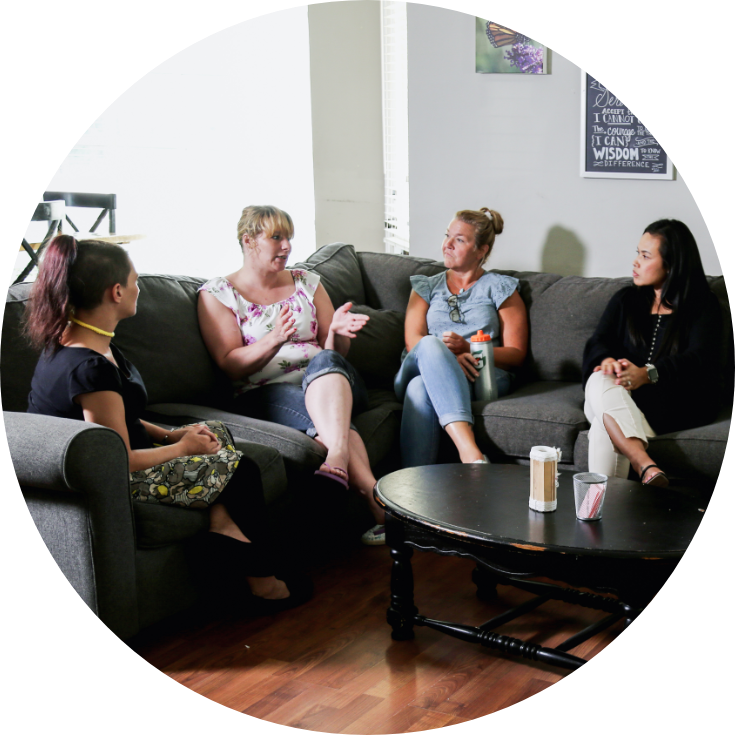When addiction tells you a lie, reach for the truth.
Addiction Resources
Addiction touches virtually every community in the country – including ours. In 2019, 20.4 million Americans throughout the U.S. were affected by drug and alcohol addiction. And less than 10% of them actually received treatment.
Frequently Asked Questions
What is addiction?
Addiction is a chronic, complex brain disease. And it’s progressive, meaning without treatment, addiction will almost certainly get worse with time. Addiction damages a person’s physical, mental, emotional and spiritual health and well-being. It hijacks key areas of the brain, distorting perceptions and motives, resulting in destructive, compulsive behavior.
What causes addiction?
No single cause has been found, yet research shows addiction is the result of multiple contributing factors, such as genetics, environment, mental health, trauma and even the developmental stage of the individual.
How do you cure an addiction?
We don’t have a cure for addiction. However, like diabetes, heart disease, asthma, and other chronic diseases, we do know how to treat it. We’ll help you manage the disease of addiction and create positive habits for your recovery. Learn more about the specialized treatment and support that Reach can provide for you and your family.
What can I do if my family member is struggling with addiction?
Addiction is a disease that affects everyone, not just the person with the disease. Relationships are often damaged and trust is destroyed. If you have a loved one struggling with addiction, even if they are not currently in treatment, Reach provides a variety of services tailored to your needs.
Learn more about our Family Services.
Frequently Asked Questions
Addiction is a chronic, complex brain disease. And it’s progressive, meaning without treatment, addiction will almost certainly get worse with time. Addiction damages a person’s physical, mental, emotional and spiritual health and well-being. It hijacks key areas of the brain, distorting perceptions and motives, resulting in destructive, compulsive behavior.
No single cause has been found, yet research shows addiction is the result of multiple contributing factors, such as genetics, environment, mental health, trauma and even the developmental stage of the individual.
We don’t have a cure for addiction. However, like diabetes, heart disease, asthma, and other chronic diseases, we do know how to treat it. We’ll help you manage the disease of addiction and create positive habits for your recovery. Learn more about the specialized treatment and support that Reach can provide for you and your family.
Addiction is a disease that affects everyone, not just the person with the disease. Relationships are often damaged and trust is destroyed. If you have a loved one struggling with addiction, even if they are not currently in treatment, Reach provides a variety of services tailored to your needs. Learn more about our Family Services.
Addiction & Recovery Resources
Above the Influence
Depression and Bipolar Support Alliance
Gamblers Anonymous
Michigan Department of Health & Human Services, Recovery and Substance Abuse
Michigan Department of Health & Human Services, Reports and Statistics
National Council on Alcoholism and Drug Dependence
National Institute on Drug Abuse, The Science of Drug Abuse & Addiction
National Substance Abuse Index, Michigan Substance Abuse Statistics
NIDA for Teens, The Science Behind Drug Abuse
Partnership for Drug-Free Kids™
Start Your Recovery
Substance Abuse and Mental Health Services Administration
Support Groups
These programs are a proven and powerful tool in the treatment, recovery and maintenance of substance addiction, and many offer companion programs for family members that are equally strong as a source of support and understanding.

